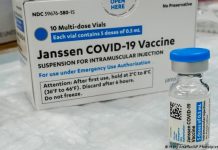
Obesity could overtake smoking in cancer death risk – says new study.
Nearly 40 per cent of all cancers diagnosed in the UK every year could be avoided through lifestyle changes, according to new research.
Smoking is the biggest avoidable cause of cancer, followed by excess weight, overexposure to UV radiation from the sun and sunbeds, drinking alcohol, eating too little fibre, and outdoor air pollution, a study by Cancer Research UK found.
Experts presenting the data warned that with smoking rates continuing to go down and rates of obesity on the increase, obesity could overtake smoking as the biggest killer.
Cancer Research UK chief executive Sir Harpal Kumar said: “Obesity is potentially the new smoking, if we’re not careful.
“My sense would be it’ll be some time in next couple of decades that we’ll see those two switch around.”
He said the landmark study demonstrates that prevention is the best way of beating the killer disease, adding that the Government could be doing “much more” to help people make healthier choices.
The latest figures, calculated from 2015 cancer data, show more than 135,500 cases of cancer a year could be prevented – equating to 37.7% of all cancers diagnosed in the UK every year and rising to 41.5% in Scotland.
Smoking remains the biggest preventable cause of cancer – responsible for around 32,200 cases of cancer in men (17.7% of all male cancer cases) and around 22,000 (12.4%) in women.
Excess weight is the second biggest preventable cause of cancer, with around 22,800 (6.3%) cases down to being overweight or obese.
The research published in the British Journal of Cancer shows that obesity causes 13 different types of cancer, including bowel, breast, womb and kidney, and more than one in 20 cases could be prevented by maintaining a healthy weight.
Dr Katrina Brown, Cancer Research UK’s statistical information and risk manager, and the study’s lead author, said the public did not understand the risks of smoking until relatively recently, and it is hoped that increased information and awareness will mean the same will eventually become of obesity.
Asked about accusations of fat shaming following a recent obesity-related campaign by the charity, she said: “We definitely need to change attitudes towards obesity.
“As a charity we have a responsibility to communicate evidence about risk.”
Highlighting studies that show public perceptions of what is a normal weight have gone up, Dr Brown added: “People regard being large as increasingly normal – that is a shift in cultural norms and acceptability.
“So we need to not only convey the message about the health risks, but also that our population is getting larger.”
Sir Harpal said people are becoming increasingly aware about the dangers of being overweight, but “how quickly that translates into actual changes is much less predictable”.
He said that as it takes 10 to 20 years for cancers relating to such risk factors to occur, any improvements will take a similar time to become apparent.
The data shows the third biggest preventable cause of cancer is overexposure to UV radiation from the sun and sunbeds – causing around 13,600 cases of melanoma skin cancer a year (3.8% of all cancer cases).
Drinking alcohol causes around 11,900 cases, while eating too little fibre is responsible for around 11,700.
Air pollution is to blame for around 3,600 lung cancer cases a year, while other risks include occupational exposures (mainly due to asbestos), infections, eating processed meat, and not enough physical activity.
Sir Harpal added: “Leading a healthy life doesn’t guarantee that a person won’t get cancer, but it can stack the odds in your favour. These figures show that we each can take positive steps to help reduce our individual risk of the disease.
“This research clearly demonstrates the impact of smoking and obesity on cancer risk. Prevention is the most cost-effective way of beating cancer and the UK Government could do much more to help people by making a healthy choice the easy choice.”
Professor Linda Bauld, Cancer Research UK’s prevention expert, said: “Obesity is a huge health threat right now, and it will only get worse if nothing is done.
“The UK Government must build on the successes of smoking prevention to reduce the number of weight-related cancers. Banning junk food TV adverts before the 9pm watershed is an important part of the comprehensive approach needed.”













